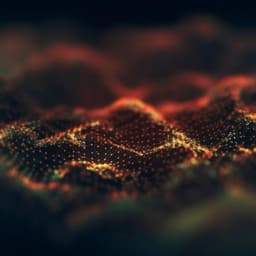
Medicine and Health
Large-scale perfused tissues via synthetic 3D soft microfluidics
S. Grebenyuk, A. R. A. Fattah, et al.
This groundbreaking research by Sergei Grebenyuk and colleagues from KU Leuven unveils a new method for vascularizing engineered tissues and organoids, achieving impressive perfusion in multi-mm³ constructs. The study not only demonstrates the viability and proliferation of these tissues but also shows accelerated neural differentiation, paving the way for complex and scalable human tissue models.
~3 min • Beginner • English
Related Publications
Explore these studies to deepen your understanding of the subject.







